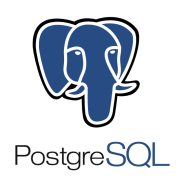Vector Databases are designed to store and manage vectorized data, enabling efficient searching and similarity calculations through complex data structures such as indexes. They cater to high dimensional data analysis needs.
These databases store data in vector format, making them well-suited for AI applications, recommendation systems, and natural language processing. They utilize indexing techniques like HNSW or IVF Flats to facilitate rapid searches through millions of data points. Their scalability and adaptability make them indispensable in handling large datasets, providing a bridge between raw data and actionable insights.
What are critical features of these solutions?In industries like e-commerce and finance, Vector Databases assist in creating personalized user experiences through recommendation engines and risk assessments. They enable rapid processing of large vectors, necessary for real-time applications in video, image recognition, and healthcare analytics.
This category of databases offers organizations the ability to swiftly process and analyze data, which is crucial for keeping up with the fast-paced technological landscape. By providing efficient data management solutions, they help organizations enhance operational efficiency and maintain competitive advantage.
| Product | Market Share (%) |
|---|---|
| Supabase Vector | 10.6% |
| Chroma | 10.2% |
| Qdrant | 9.0% |
| Other | 70.2% |






























Vector Databases enhance search query results by employing machine learning algorithms to interpret natural language inputs, making them highly effective for managing unstructured data like images, audio, and text. You benefit from their advanced ability to handle semantic search, ensuring that search results are more relevant and contextually accurate compared to traditional keyword-based databases.
What are the key use cases for Vector Databases in real-time applications?Vector Databases are essential in real-time applications such as recommendation systems, fraud detection, and personalized content delivery. They allow you to process large volumes of data at high speed, ensuring you can provide immediate, tailored responses to each user, enhancing user experience and operational efficiency.
How secure are Vector Databases for sensitive data handling?Vector Databases implement robust security measures, including encryption, access controls, and routine audits, ensuring your sensitive data is well protected. You can trust these databases to maintain data integrity and privacy, complying with regulatory standards while delivering fast, efficient performance.
What are the advantages of using Vector Databases for natural language processing applications?Vector Databases are optimized for natural language processing due to their ability to understand context and semantics, not just keywords. By using them, you can enhance applications in sentiment analysis, chatbot interactions, and voice recognition, ensuring they are more intuitive and aligned with human language complexity.
Why should businesses consider Vector Databases over traditional databases?Businesses benefit from the superior performance, scalability, and flexibility of Vector Databases. They are designed for handling high-dimensional data, making them ideal for advanced AI and machine learning applications. Implementing them ensures your business stays competitive, leveraging data insights more effectively and efficiently than traditional databases.